Following October’s daring Sitong bridge protest (above) against Xi Jinping’s autocratic rule, copycat demonstrations have since spread to more than 350 campuses around the world, organized by Chinese students who are tired of seeing their country move backward, note the Post’s Lily Kuo, Vic Chiang and Theodora Yu.
And scientist Peng Lifa, although never confirmed as the Sitong instigator, is now known as “Bridge Man” — an echo back to the unknown man who faced down a column of Chinese military tanks leaving Beijing’s Tiananmen Square a day after the 1989 massacre, they report. Overseas activists are trying to build on the momentum. Chinese artist Jiang Shengda, based in France, published a draft manual for Chinese protests abroad with tips. It also solicits advice from Hong Kong and Uyghur activists.
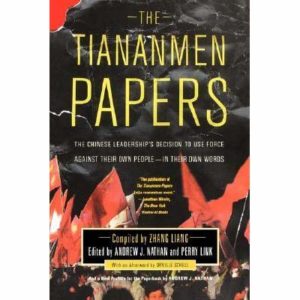 Bao Tong, the most senior Communist Party official imprisoned over the Tiananmen protests that shook Beijing in 1989, has died at 90, the BBC’s Fan Wang reports. He championed political reform in the 1980s during pro-democracy protests. But after crushing the movement, the Communist Party expelled Bao and jailed him for seven years.
Bao Tong, the most senior Communist Party official imprisoned over the Tiananmen protests that shook Beijing in 1989, has died at 90, the BBC’s Fan Wang reports. He championed political reform in the 1980s during pro-democracy protests. But after crushing the movement, the Communist Party expelled Bao and jailed him for seven years.
Wang Dan, a student leader from the Tiananmen protests, hailed him on Twitter as a reformer and rebel who was crucial to China opening up. Although he is “against” the Chinese Communist Party, he wrote that he would still like to “express utmost respect” for former party officials like Bao who fought for change before eventually leaving.
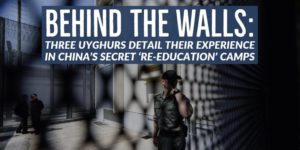 On Oct. 6, the United Nations Human Rights Council rejected a resolution to hold a debate on China’s violations of human rights in Xinjiang. The vote was spurred by a meticulous report published five weeks earlier by the Office of the High Commissioner for Human Rights (OHCHR), which detailed Chinese state-directed persecution of Uyghurs and other Turkic Muslim minorities that “may constitute … crimes against humanity,” notes Kelley E. Currie, an international human rights lawyer and former U.S. State Department official.
On Oct. 6, the United Nations Human Rights Council rejected a resolution to hold a debate on China’s violations of human rights in Xinjiang. The vote was spurred by a meticulous report published five weeks earlier by the Office of the High Commissioner for Human Rights (OHCHR), which detailed Chinese state-directed persecution of Uyghurs and other Turkic Muslim minorities that “may constitute … crimes against humanity,” notes Kelley E. Currie, an international human rights lawyer and former U.S. State Department official.
The council’s failure to carry out its most basic function as the U.N.’s premier venue or the promotion and protection of human rights stands as an indictment of the council itself, adds Currie, a board member of the National Endowment for Democracy (NED). It also demonstrates the deep success of China’s decades-long project to rewire the normative framework of international human rights and replace it with the idea that human rights are negotiable and subject to the prerogatives of states, she writes for Foreign Policy:
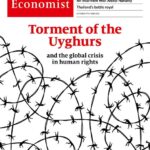 Concerned countries must learn the right lessons from … past experiences and embrace the paradoxical idea of winning by losing—using every opportunity they have to highlight the grave dangers posed by China’s authoritarian approach to human rights and the U.N. system. They will need to be strategically focused and tactically flexible, using venues across the U.N. in concert with and alongside the Human Rights Council, to present a consistent message that compels China to
Concerned countries must learn the right lessons from … past experiences and embrace the paradoxical idea of winning by losing—using every opportunity they have to highlight the grave dangers posed by China’s authoritarian approach to human rights and the U.N. system. They will need to be strategically focused and tactically flexible, using venues across the U.N. in concert with and alongside the Human Rights Council, to present a consistent message that compels China to
expend resources to respond.
Trading off human rights for climate action won’t work; this isn’t the same as when democracies look the other way because of an economic relationship, says Carnegie Europe Director Daniel Baer, citing the case of British-Egyptian activist Alaa Abd el-Fattah.
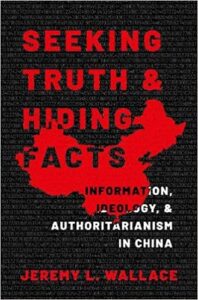 Like the Soviet Union during the Cold War, the Chinese Communist Party also believes that its ideology should be exported abroad, but for different reasons, say AEI analysts Joseph Tavares and Kori Schake. While the Soviet Union maintained that humans everywhere would be eager to throw off the shackles of capitalism and adopt a Soviet-like system, contemporary Chinese rulers have apparently concluded that many countries want to achieve Western levels of development without adopting Western ideas like democracy, human rights, or certain freedoms, they write:
Like the Soviet Union during the Cold War, the Chinese Communist Party also believes that its ideology should be exported abroad, but for different reasons, say AEI analysts Joseph Tavares and Kori Schake. While the Soviet Union maintained that humans everywhere would be eager to throw off the shackles of capitalism and adopt a Soviet-like system, contemporary Chinese rulers have apparently concluded that many countries want to achieve Western levels of development without adopting Western ideas like democracy, human rights, or certain freedoms, they write:
But instead of focusing too much on ideology or over-militarizing the problem, US policy should re-center on economic issues by, for example, increasing integration with other advanced democracies and key developing states like India, which would mitigate the impact of China’s strategy of insulating itself from the West and dominating key technologies…..Here, the late satirist P.J. O’Rourke’s comments on the end of the Cold War are instructive, they add: “A huge totalitarian system with all its tanks and guns, gulag camps, and secret police had been brought to its knees because nobody wants to wear Bulgarian shoes.”
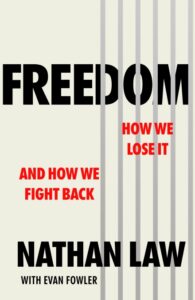 “Confronting China’s transnational authoritarianism: How the transatlantic community can respond.”
“Confronting China’s transnational authoritarianism: How the transatlantic community can respond.”
The Atlantic Council hosts a discussion with Nathan Law, Hong Kong Democracy Council; Michael Chong, shadow minister for foreign affairs for the Opposition, Canada; and Johanna Kao, regional director for Asia-Pacific at the International Republican Institute.
4 p.m. November 17, 2022. Atlantic Council, 1030 15th Street NW, 12th Floor, Washington, D.C. Registration and livestream HERE.







